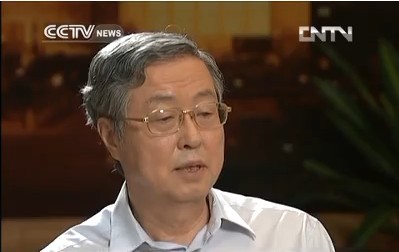Zhou: Ample liquidity & no worry of hard landing
Where China's monetary policy is going in the second half as the country pushes through economic restructuring and while the external environment remains challenging? Zhou Xiaochuan, Governor of the People's Bank of China, spoke with CCTV recently and tells us what to expect.
China's economy is switching gears to moderate. Meanwhile the global economic picture is patchy. Skeptics say China is headed for a hard landing. Zhou Xiaochuan disagrees.
"China still has a strong internal driving power for economic growth, and a continual decline will not happen. We'll find a balanced measure to keep a relatively fast economic growth, and at the same time improve our economic structure. Meanwhile, there'll still be space to reinforce our economic reform."said Zhou Xiaochuan, Governor of PBOC.
On whether monetary policy will be loosened for the rest of the year, Zhou says don't expect big changes.
"The monetary policy should take into consideration of economic growth, employment, price and the balance of payments. Generally speaking, I think we'll still keep a stable monetary policy this year. I think there'll be no big adjustment, but only some minor structural adjustments when necessary."Zhou told the reporter.
The cash shortage in June led to worries that China may lack liquidity. Zhou Xiaochuan says China has sufficient liquidity, which would not be impacted by short-term incidents. China is also pushing ahead interest reforms, the PBOC scrapped the floor on bank lending rates and freed up bank discount rates in July.
"There will be no huge change in the average loan interest level, but there is bigger freedom. Both sides in the market can now decide the interest rate according to the demand and supply."said Zhou.
"The PBOC has prepared in techniques and conditions to realize the marketization of deposit rates as soon as possible. I think the opening up of deposit rates is being proceeded as planed, and the situation is optimistic."said Zhou.
The PBOC says it would gradually free up deposit rates depending on economic fundamentals.


























